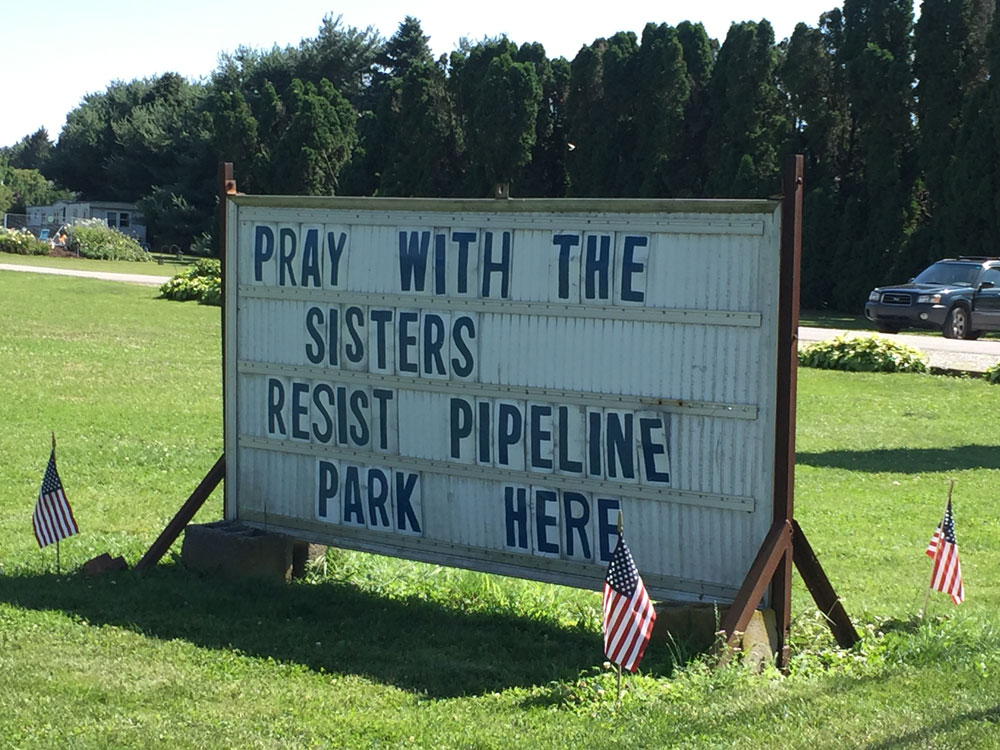
June 3, 2019; WHTM-TV (Harrisburg, PA)
Following the lead of South Dakota, Texas, and Louisiana, Pennsylvania legislators have proposed Senate Bill 323, introduced by state Sen. Scott Martin (R-Lancaster), which would target pipeline protestors in particular. The bill would provide for the recuperation of emergency response costs from people participating in protests. This, however, is perhaps mild next to a potential ten years in prison for those who impair or interrupt a pipeline during construction.
“This kind of bill is threatening the foundation of what our country is based on,” according to Malinda Harnish-Clatterbuck, who has been arrested multiple times for participating in pipeline protests. “There are already laws in place that charge people for any damage they do to property,” she says. “This law is unnecessary.”
It is clear the bill is intended as a tactic to suppress pipeline actions because in it, Martin cites the cost of 2016 pipeline protests in North Dakota.
Sign up for our free newsletters
Subscribe to NPQ's newsletters to have our top stories delivered directly to your inbox.
By signing up, you agree to our privacy policy and terms of use, and to receive messages from NPQ and our partners.
Meanwhile, ThinkProgress reports that the Trump administration has newly proposed changes that could hit pipeline protesters with up to 20 years in prison for disrupting the construction of oil and gas infrastructure. Updates proposed to the Transportation Department’s Pipeline and Hazardous Materials Safety Administration (PHMSA) released Monday would make interrupting pipeline construction or damaging existing pipelines a federal crime.
According to the proposed PHMSA updates, first reported by Politico, “vandalism, tampering with, or impeding, disrupting or inhibiting the operation of” pipelines would be met with fines or potentially many years in jail. Under current law, damaging existing pipelines can lead to up to 20 years jail time, but those “under construction” are now a consideration, along with “disruption” to pipelines.
“The proposed penalty is far and away more extreme than what we’ve seen at the state level,” said Elly Page of International Center for Not-For-Profit Law, a nonprofit group that tracks anti-protest bills in the states. “When you combine provisions that vague to penalties that extreme, that creates uncertainty about what is and isn’t legal.”—Ruth McCambridge












